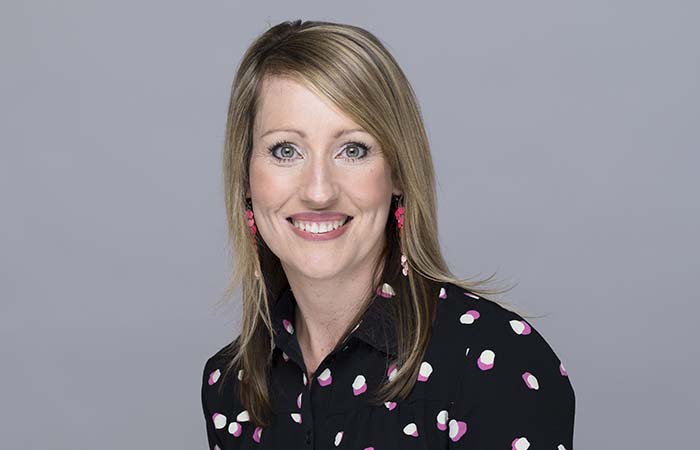Profile: Lisa Banks, NPA Insurance
In Interviews
Follow this topic
Bookmark
Record learning outcomes
The rapidly expanding sphere of community pharmacists’ professional practice is an exciting development for many – but it can also create new risks for professionals and business owners
Lisa Banks, managing director of pharmacy insurance at NPA Insurance (NPAI), began her career as a medical negligence lawyer and first joined the NPAI in-house legal team in 2004. At the time she dealt with in-house clinical negligence claims, inquests, regulatory matters – anything to do with pharmacy business where pharmacists needed legal support and defence.
She worked, she says, “very much on the side of pharmacists” to enable them to continue practising and running their day-to-day business. After 14 years she found herself head of the department and then chief operating officer, and still works very closely with the team of in-house lawyers.
Having spent many years dealing with claims herself, she says: “I can truly understand that when a pharmacist receives a claim for compensation following a dispensing error, for example, it really can be the worst day of their professional career.”
Thinking back to when Banks started out, how do the volume and nature of claims today compare? “By and large, the frequency of claims that we receive into the legal team on an annual basis stay about the same,” she says. “The majority of claims we receive are still dispensing errors and often what we call look alike and sound alike (LASA) dispensing errors.”
Are dispensing errors like LASA more common in early-career pharmacists? No, she replies – simple human error can strike in any career, irrespective how lengthy. “What we see is that there are over a billion items dispensed each year, and we receive into our team approximately 500 claims per annum.”
Despite the low number of claims, she acknowledges the pharmacy landscape was “quite different” 21 years ago. “You just would go into a pharmacy for your medication and perhaps your toiletries. Whereas now, you can go into a pharmacy for a whole range of clinical services and additional treatments.”
As a result, NPAI is seeing more complex clinical negligence claims – but she says “we are well able to deal with them”.
She continues: “Our policyholder count has stayed relatively stable over the last 20 years. I think that’s a good example in itself that in the last 20 years we haven’t seen huge spikes proportionally. Pharmacists are taking on more and more clinical risks, yet they’re obviously rising to the challenge; we’re not seeing a huge increase in claims frequency and numbers.”
What is the team seeing now that it didn’t see 20 years ago? Vaccinations are a great example. “Twenty years ago, you wouldn’t have gone into your pharmacy to have your flu jab, whereas now pharmacists are absolutely at the forefront.”
Vaccine administration is extremely safe, but with the sheer volume going through the system there will be the occasional injury, and for Banks’ team “it can be complex in needing to have expert medical evidence to assess whether the administration of vaccine was the cause of the patient’s symptoms thereafter”.
Weight loss – “a very new and very popular area, and no doubt quite lucrative” – has been another development for her team to grapple with. Banks says there have been a handful of claims against pharmacy weight loss services but adds these are still live, so she can’t provide any details. There has been no huge influx “bearing in mind the volume of weight loss medication that is being dispensed”.
Prescribing
Banks says her team are usually well prepared for service launches like Pharmacy First and independent prescribing (IP): “I personally meet with several of the NHS team and we’ve been indemnifying independent prescribers for many years.”
“We’ve worked closely with the NHS on its IP pilot for the last two years and we’ve been literally working with it on developing its systems; how it’s rolling out prescribing, what areas it’s hoping pharmacists will focus on.”
Banks says the NPA tries to look ahead and innovate rather than being reactive. “When our prescribers of the future are ready to prescribe, we know we’ve got the resources and risk mitigation materials and can assist them as much as possible.”
Covid was the only time her team were thrown for a loop, she says. “We had to work at pace – I think it was just a few days – before we agreed that we would indemnify pharmacists to provide Covid vaccinations. Because we are the insurer and the underwriters, we have the autonomy to make these very quick decisions and don’t have to go through the red tape other big insurers do.”
And when a pharmacist approached her team about indemnifying them to take part in the cancer screening pilot, she was “really proud” to support them.
She says the new NHS 10-year plan presents “a once in a generation opportunity to transfer care into the community and expand the role of community pharmacy in in a way that we’ve not seen before”.
Banks is also proud of the fact that her team won an award this year. “That really is testament to all the hard work that we do, ensuring that we are proactive and being dynamic about our cover.”

